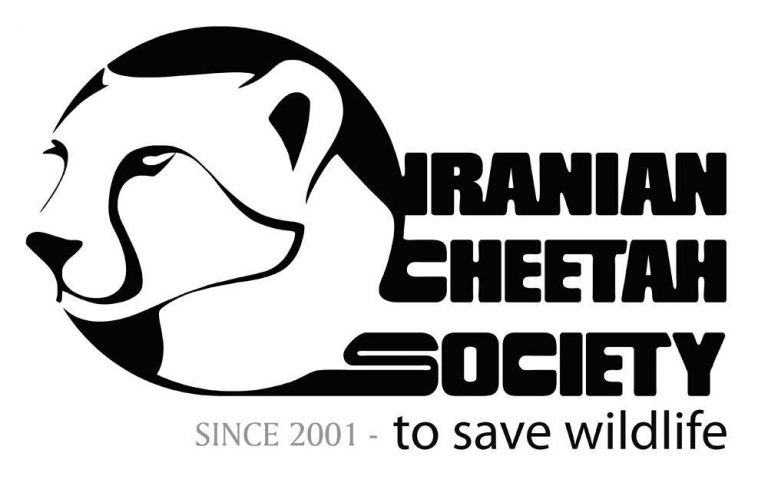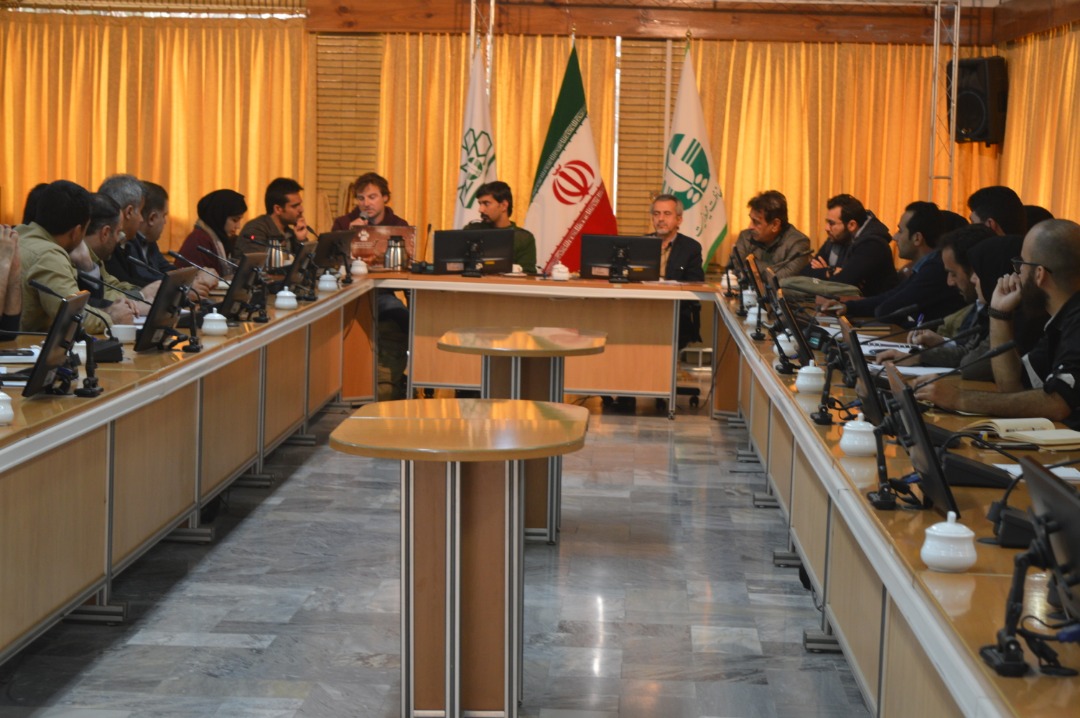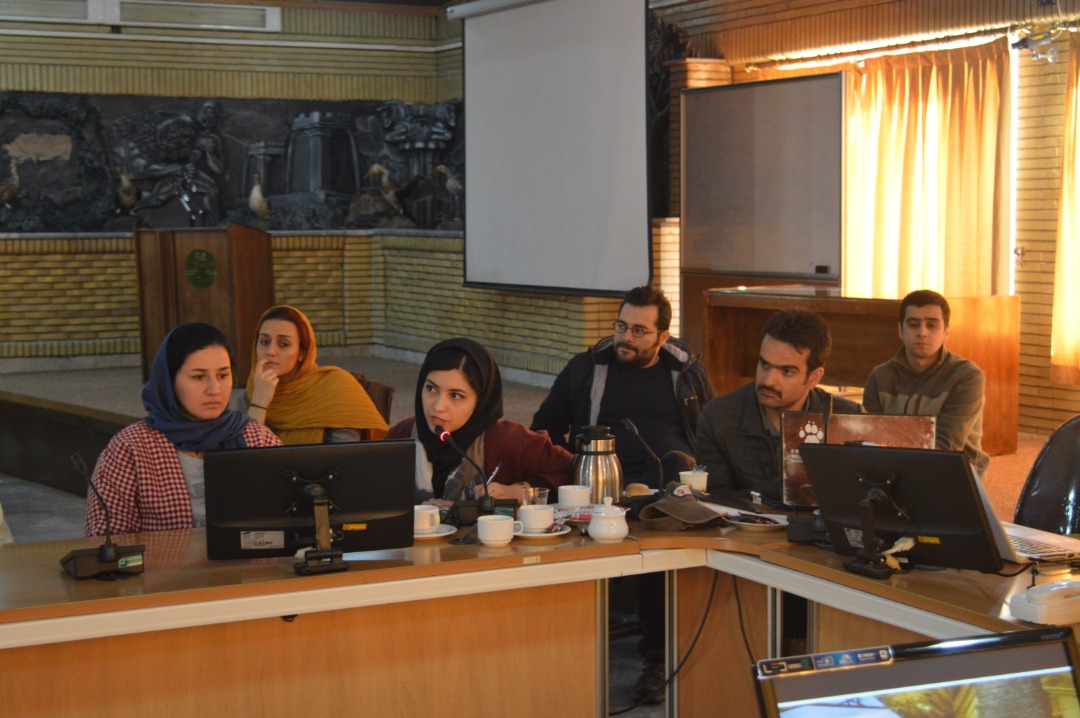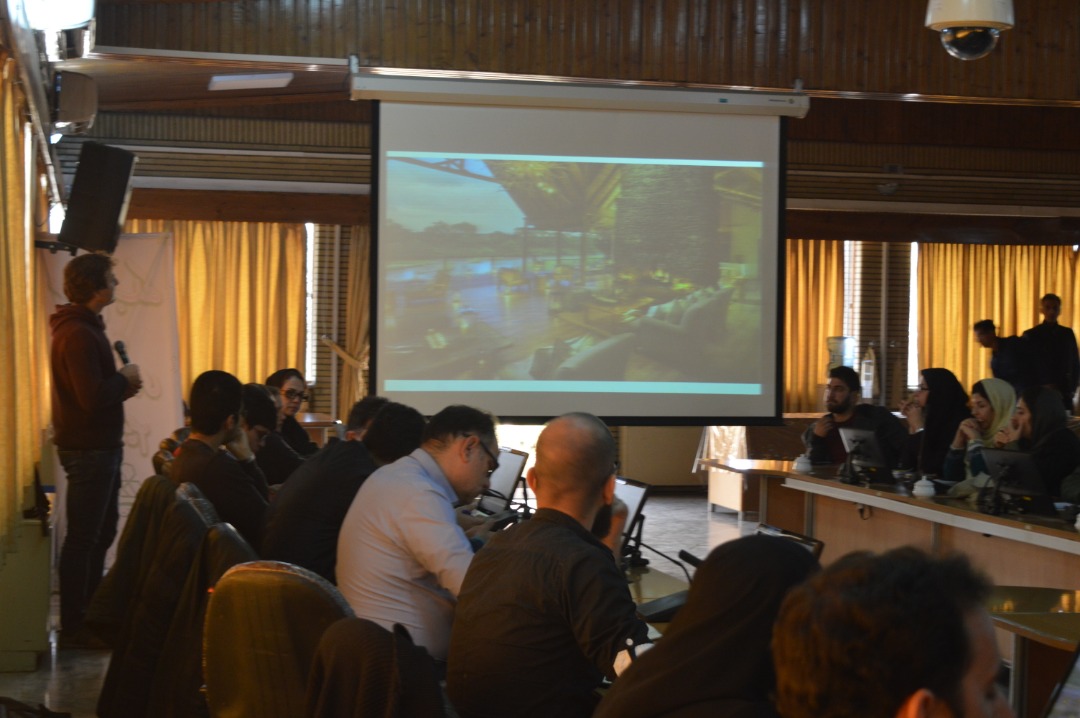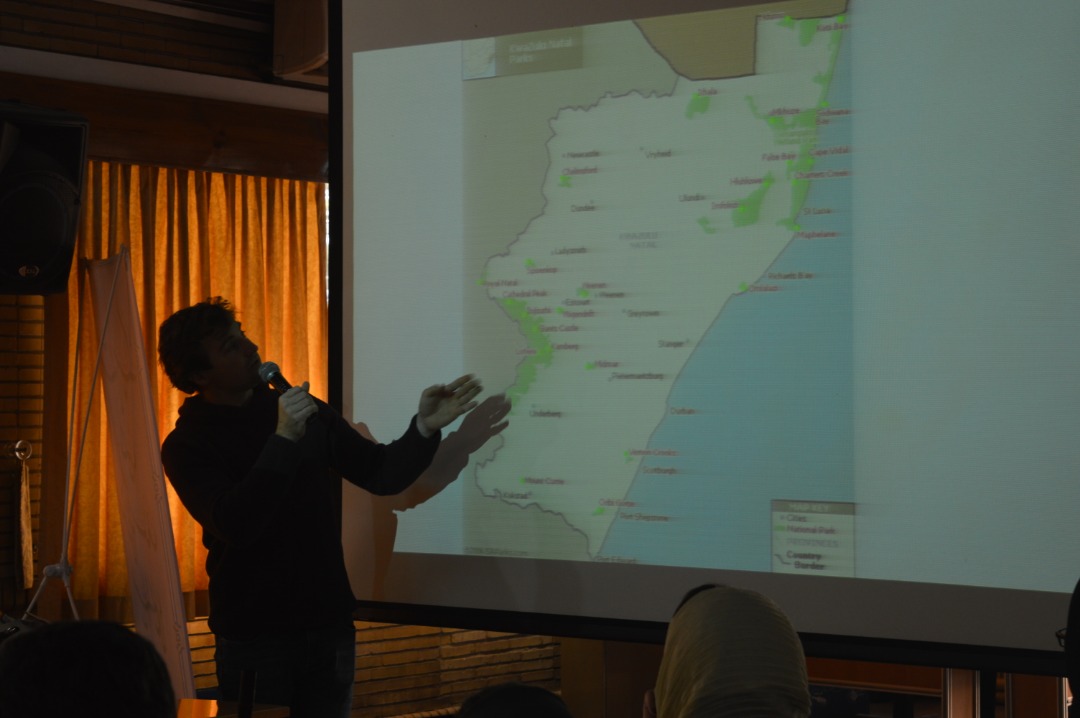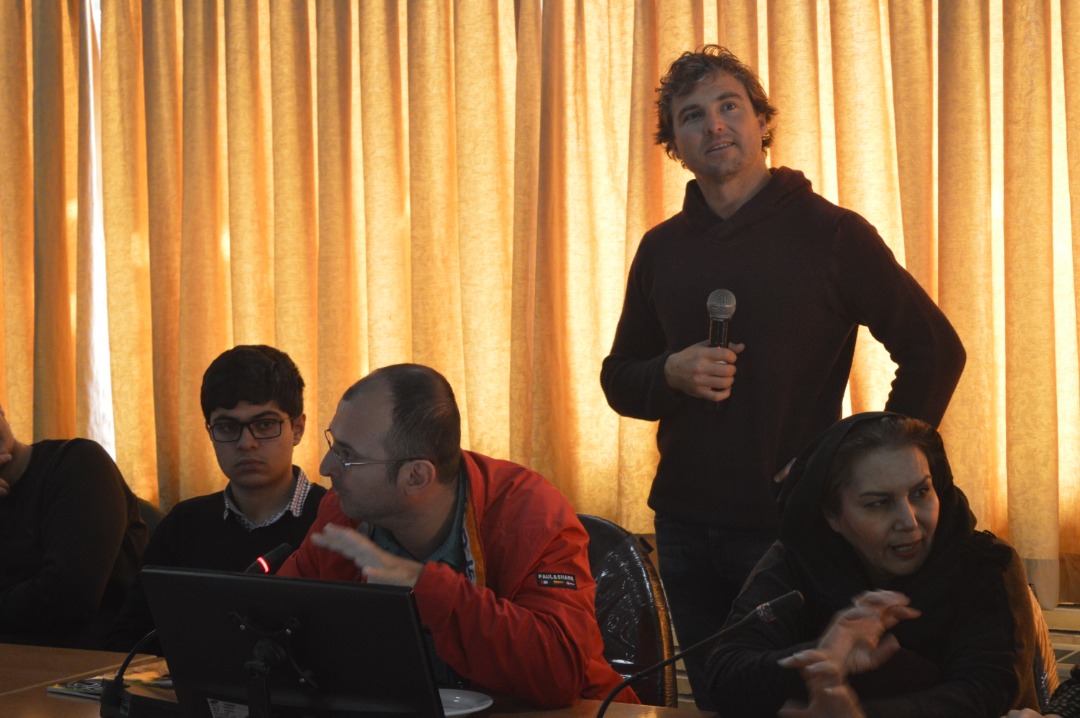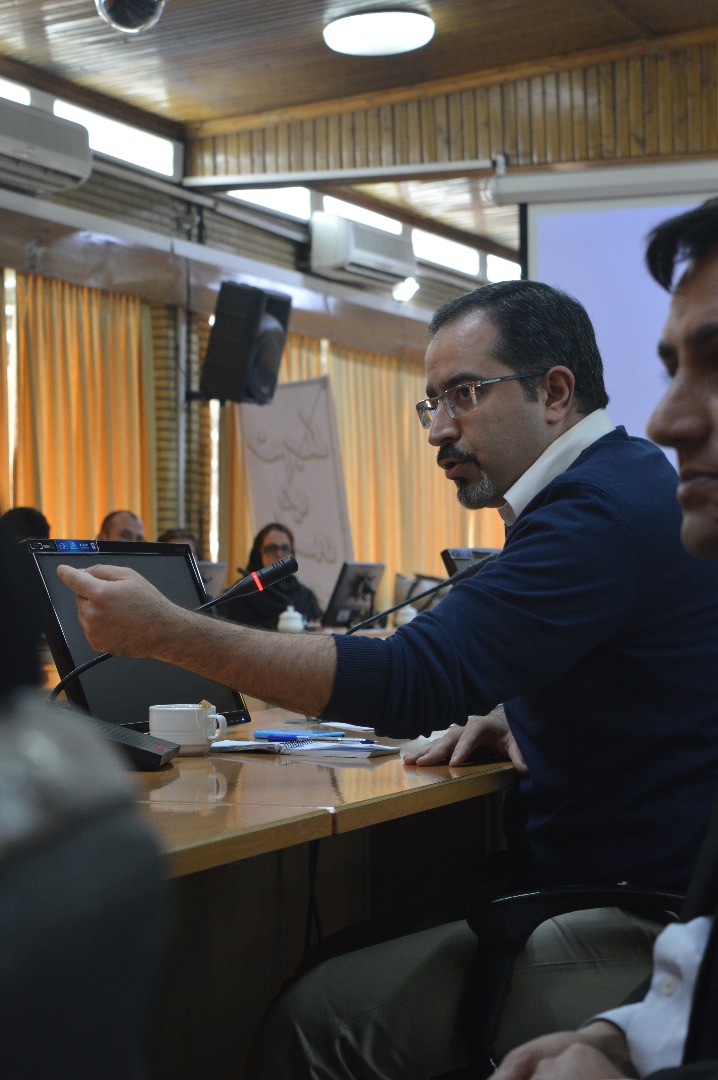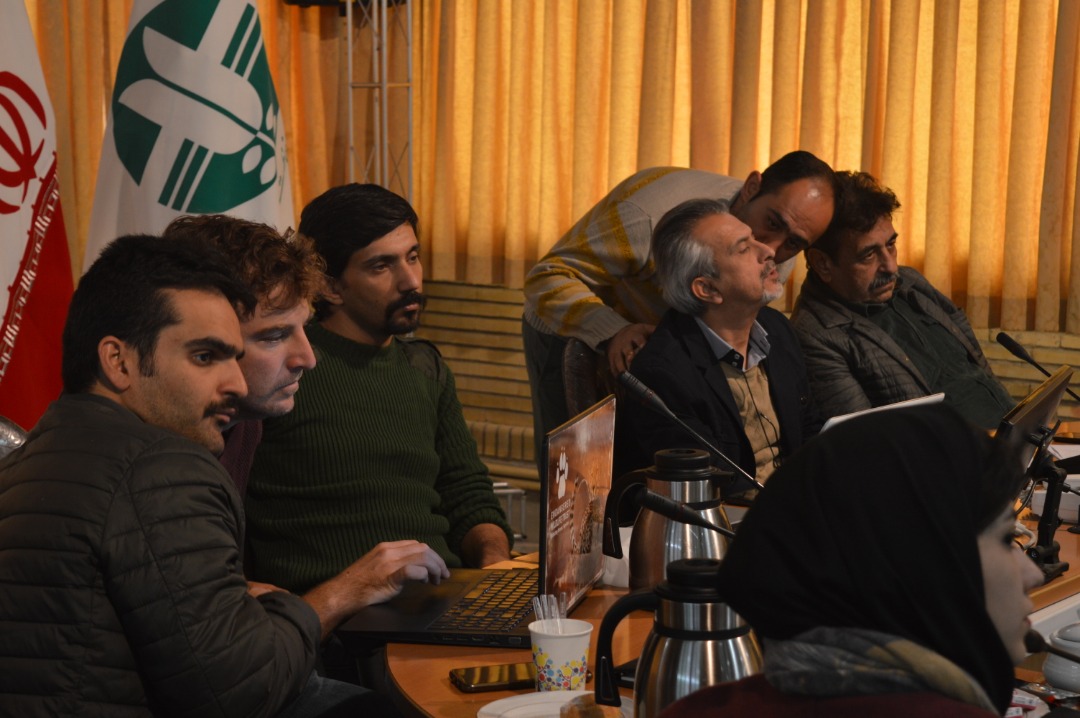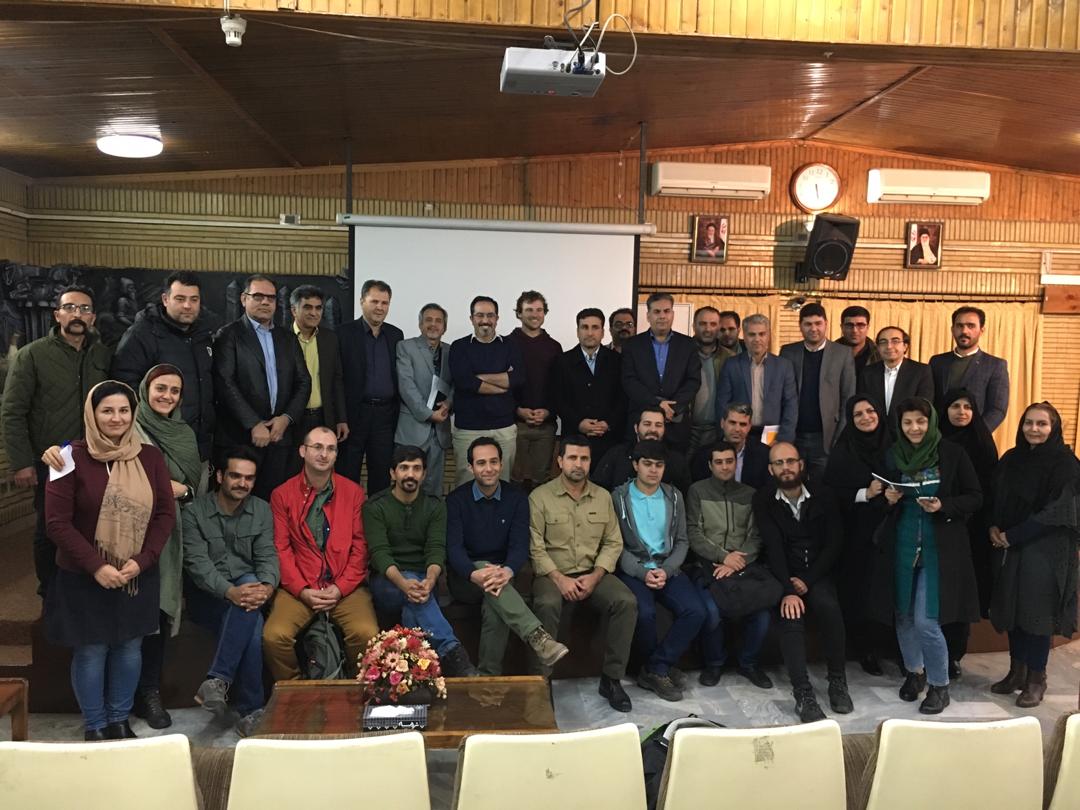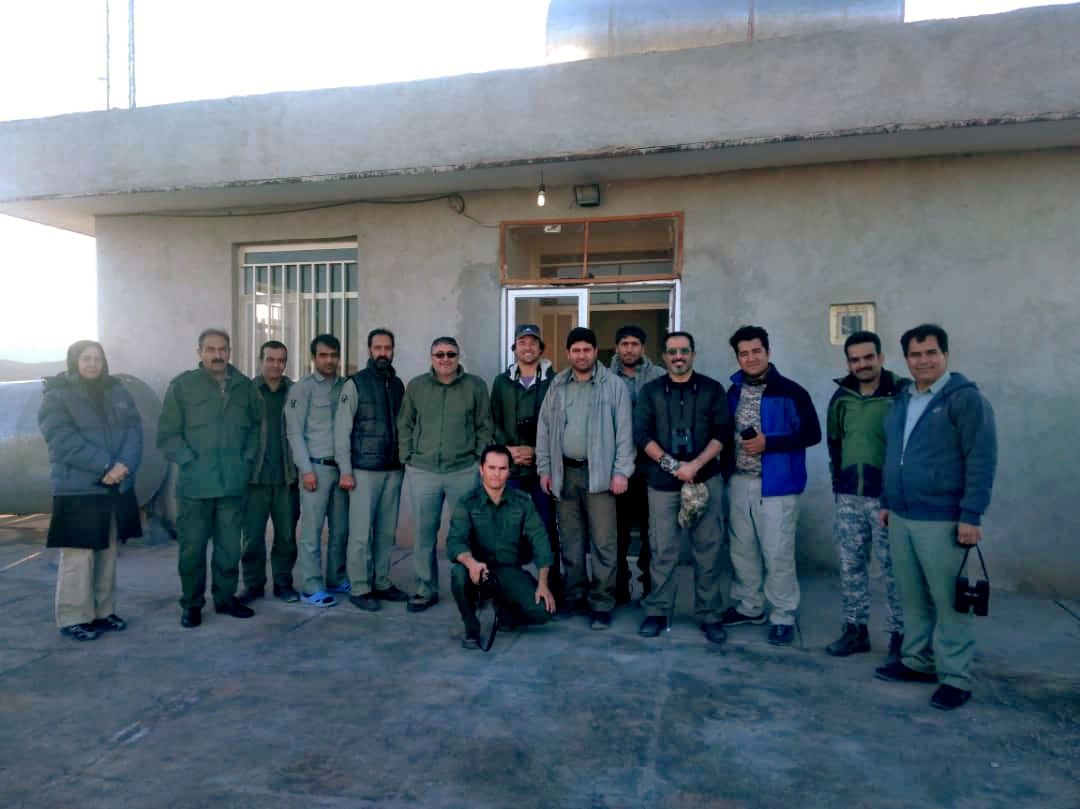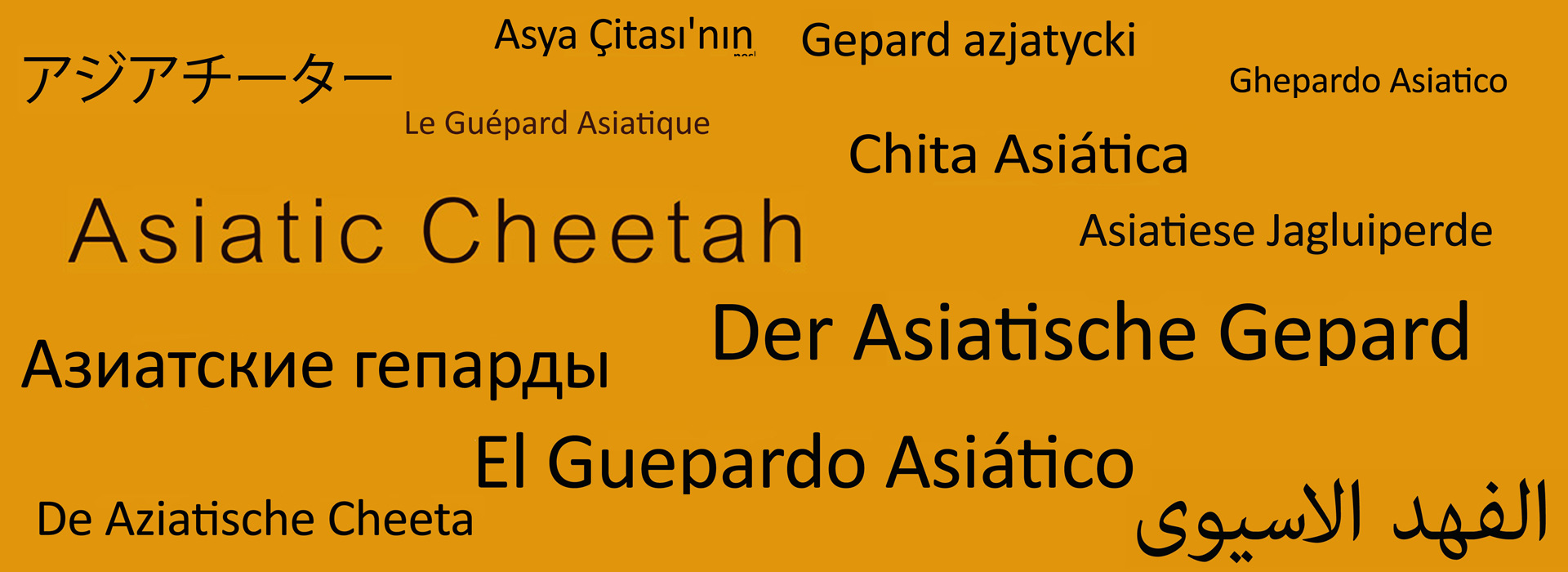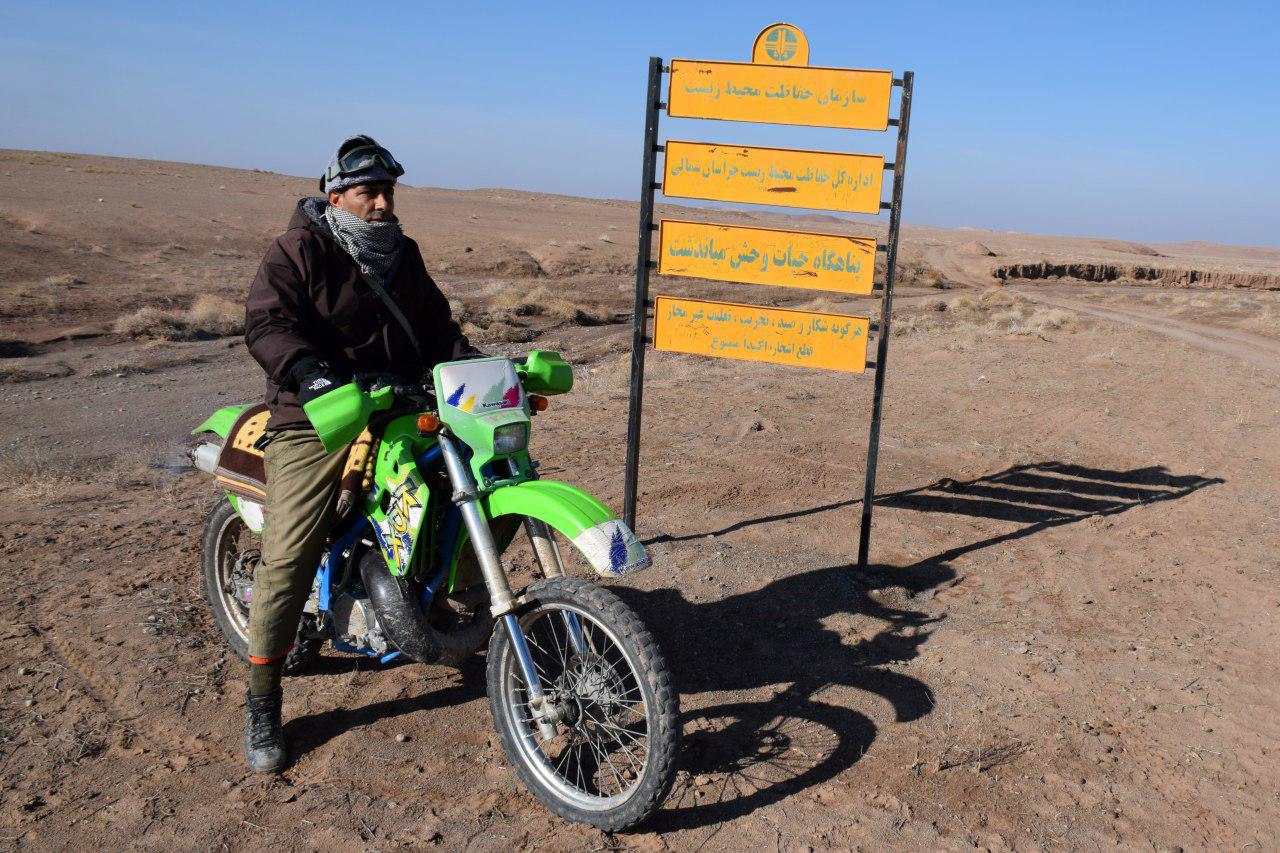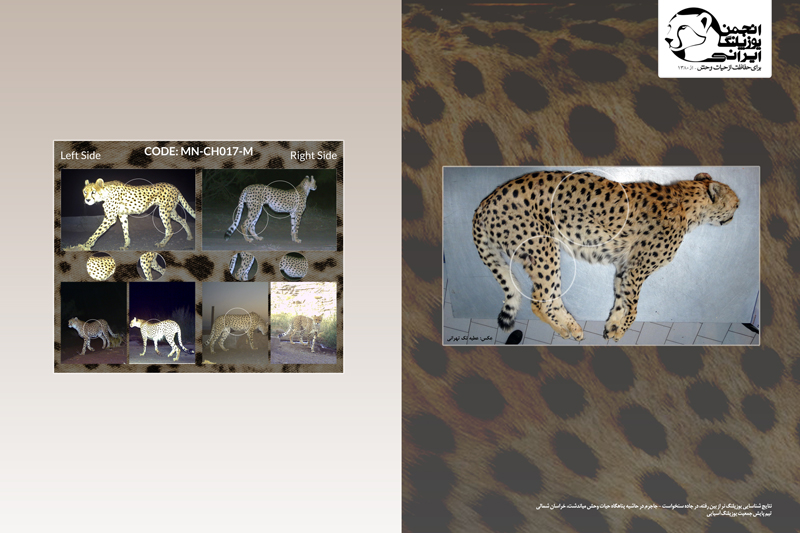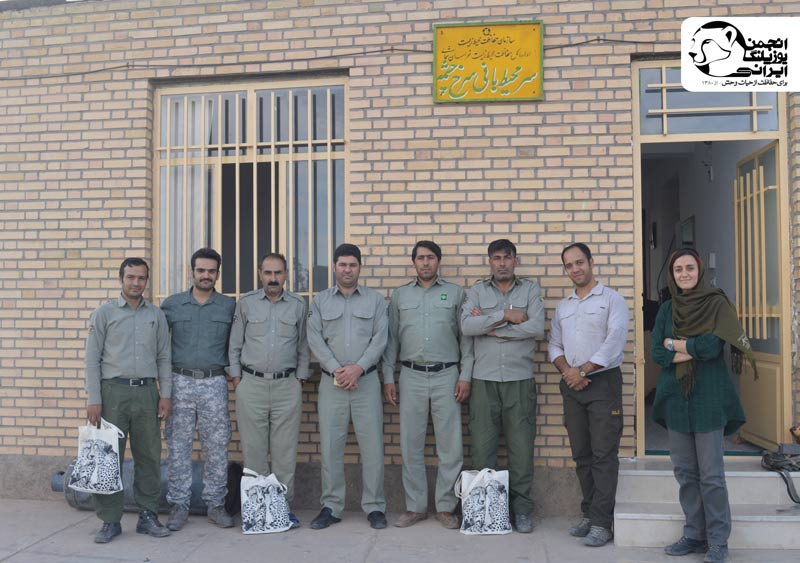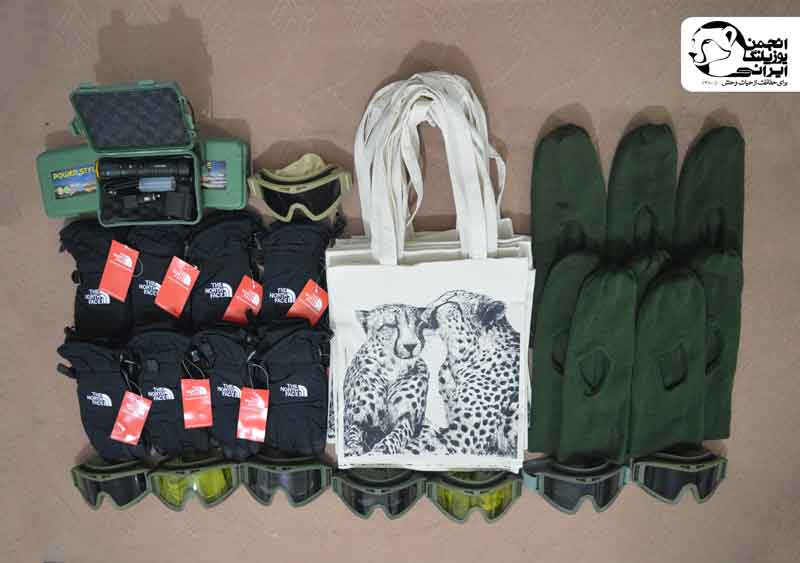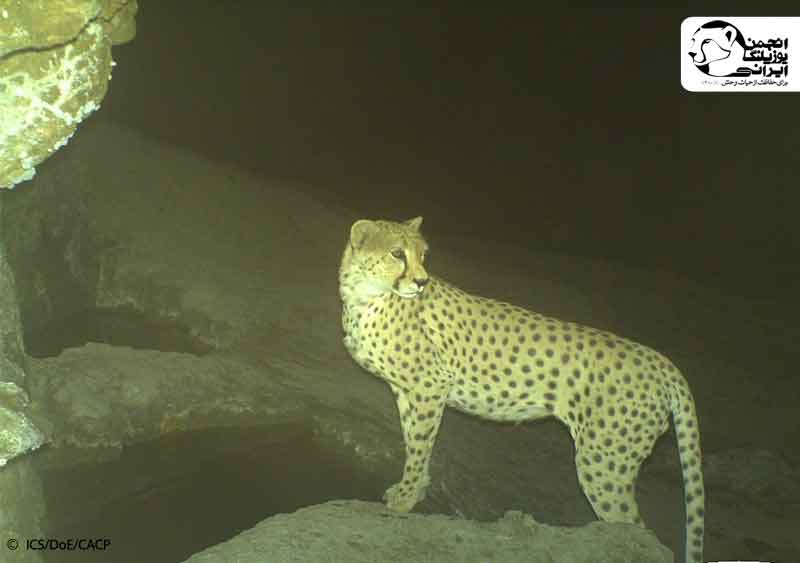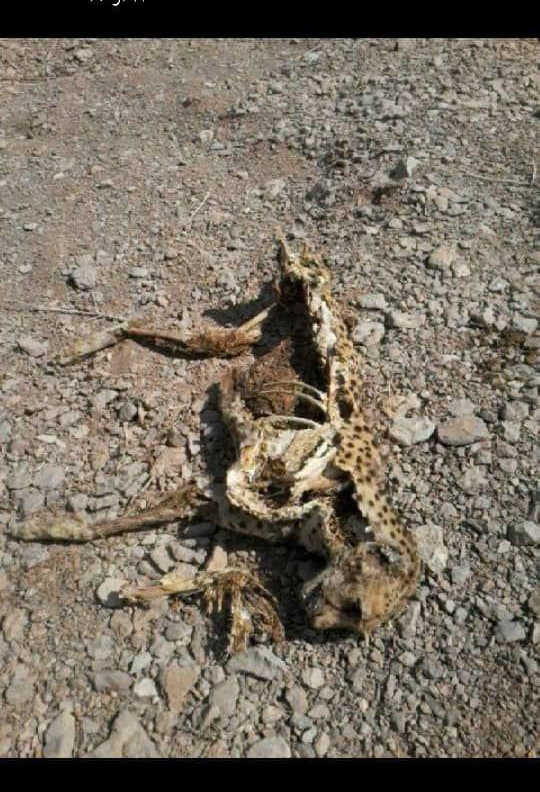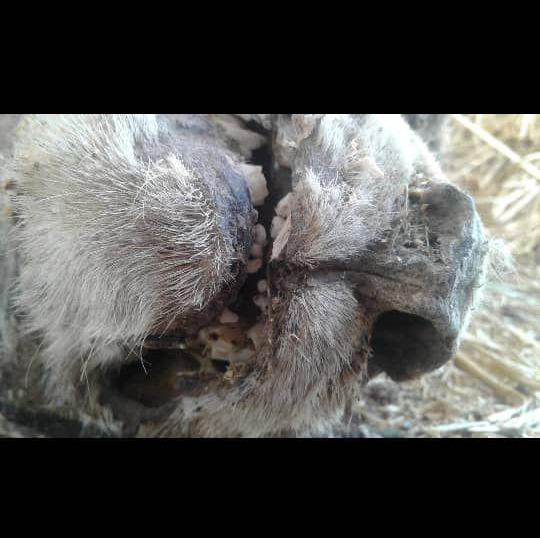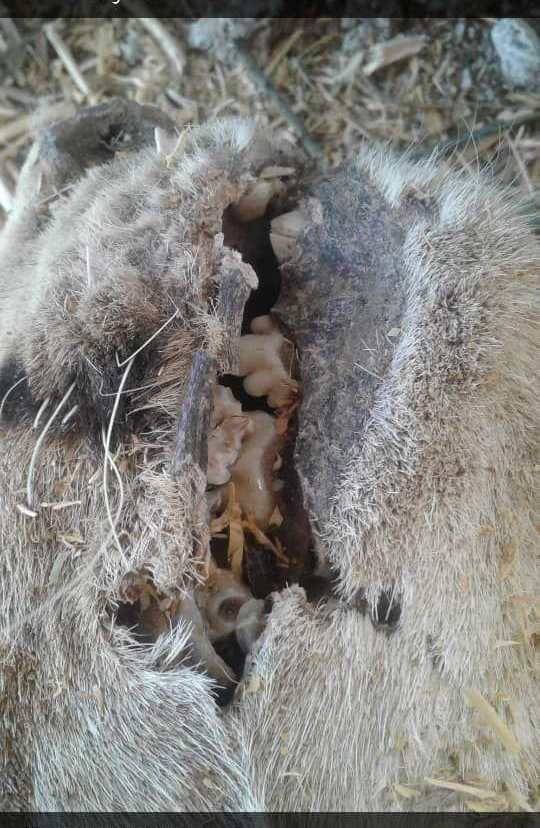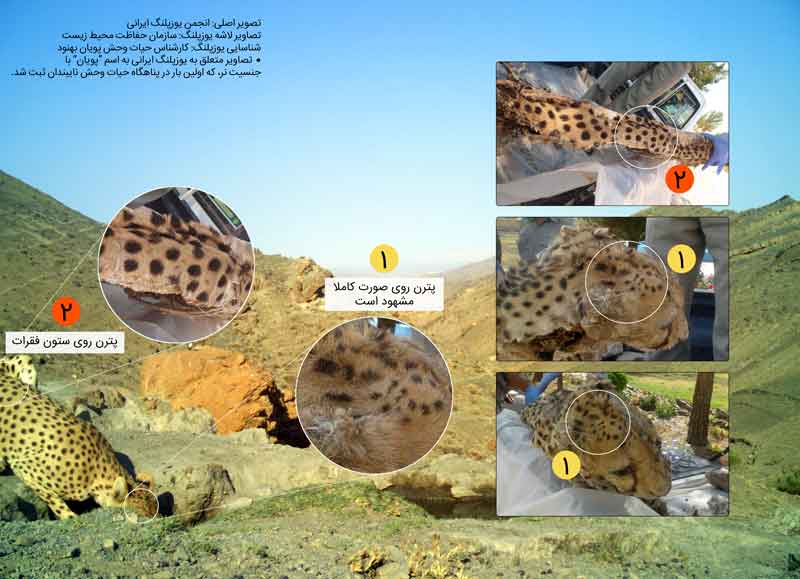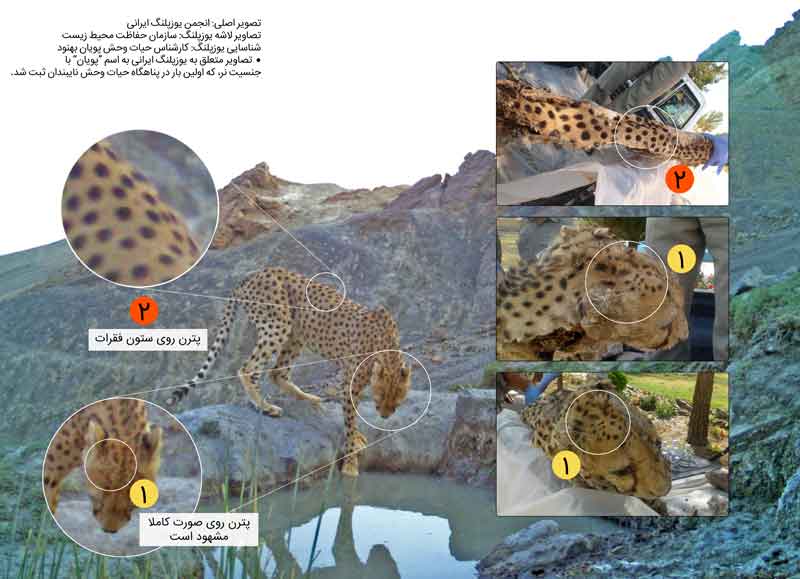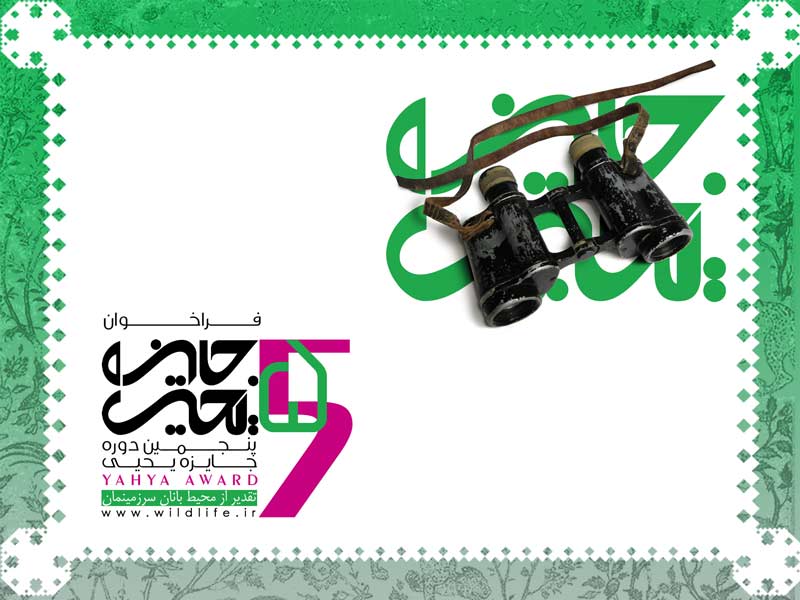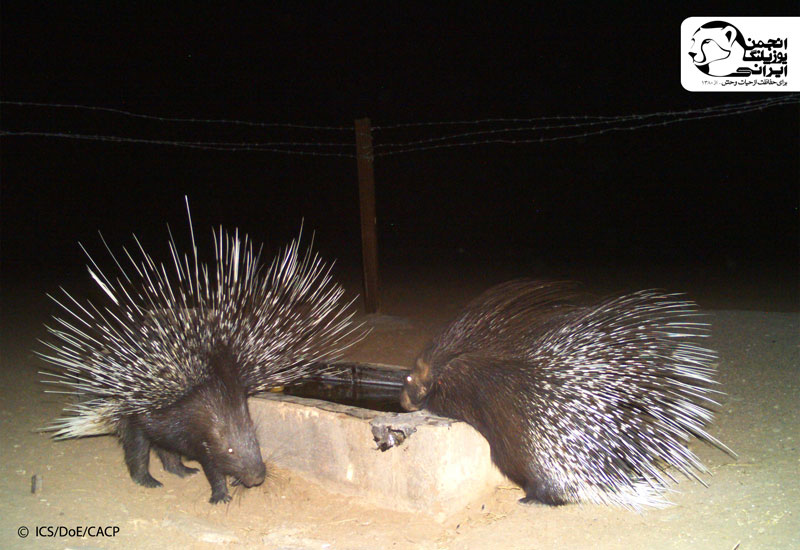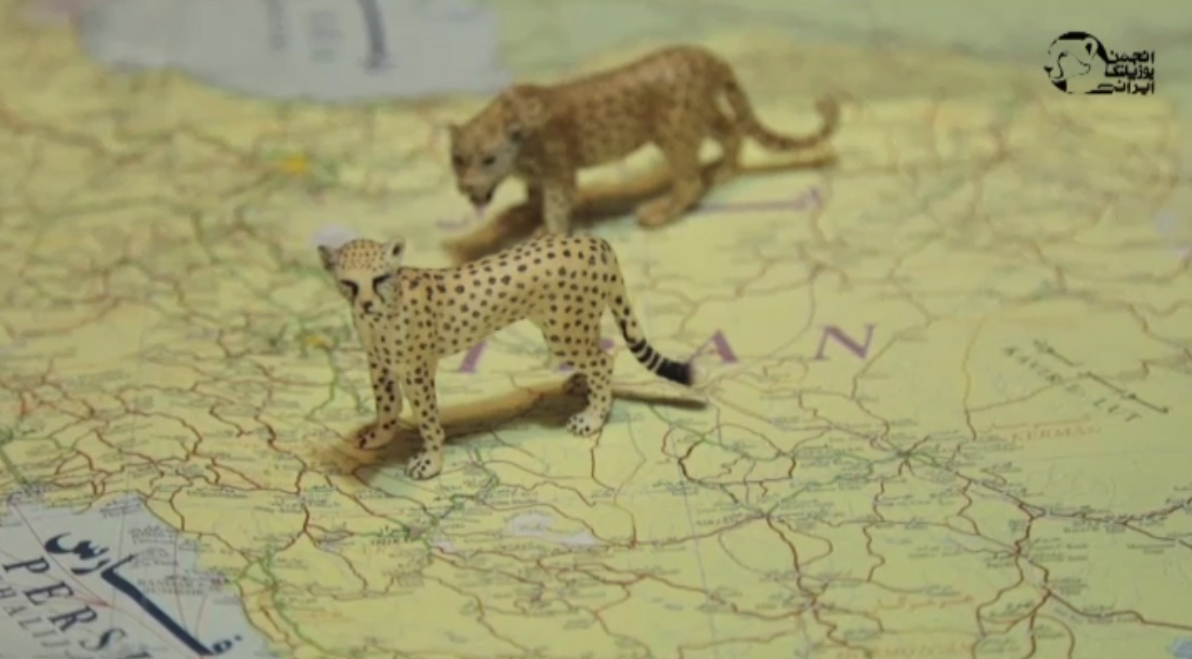During the stay of Vincent Van Der Merwe from Endangered Wildlife Trust (EWT) in Tehran, a workshop has been held to transfer the experiences of protecting the cheetahs in South Africa to the Iranian experts.
The presentation held in the Department of Environment and local DoE authorities, central DoE officers and NGOs attended in the meeting.
In this two days workshop, several subjects were discussed about the cheetah such as different approaches of conservation in the world, global experiences of ex-situ reproduction, metapopulation management in South Africa and the importance of ecotourism in conservation.
The Iranian Cheetah Society facilitated the holding of this workshop and translated the speech for the audiences and in fact, tried to gather the experts to share their ideas for a more effective conservation plan.
pourmir
Experts of ICS and EWT (Endangered Wildlife Trust) visited Miandasht Wildlife Refuge
Vincent Van Der Merwe, a member of Endangered Wildlife Trust in South Africa and ICS’s experts were accompanied to visit one of the most important habitats of cheetahs. During this three days trip, an overall presentation was given about ICS’s projects and activities since 2001 in the area. Some of the main topics were the program of supplying water for cheetahs, repairing windpumps, a campaign for employing two rangers, surveying the impact of livestock presence in the area, and cheetah monitoring in Miandasht WR.
The visit accompanied by DoE’s managers, officers, and rangers of Northern Khorasan Province and Jajarm city.
We are grateful to translate and publish the Asiatic cheetah infographic poster in 14 languages with the help our international members and friends. The high-quality files are available to download in jpeg format in the following languages:
Persian, English, Spanish, French, Italian, Arabic, Portuguese, German, Dutch, Polish, Japanese, Russian, Turkish, Afrikaans
Please help us sharing the knowledge and raising awareness about the critically endangered Asiatic cheetah.
One of the most important habitats of the Asiatic cheetah is Miandasht Wildlife Refuge, where the production of the cheetah has already captured. The area is 84000 hectares wide with only eight rangers to protect it while the herds and guard dogs presence drives the cheetahs’ population to a risky status.
Eventually, in collaboration with the Department of Environment, a crowdfunding campaign has started to help us hiring two more rangers to improve the protection level of the area for the next six months.
Join us to save one of the most important populations of the cheetahs in Miandasht Wildlife Refuge.
ICS has received international donations through its partner, World Land Trust, a UK-based non-profit organization which is devoted to protecting the most biologically important and threatened habitats across the globe. So, if you prefer using an international payment gateway, please follow this link and mention “Rangers Program” in your “Message” field while donating. We will manually add your donation to the total raised fund in the campaign page.
If you wish to use an Iranian payment gateway please follow this link.
The dominant male cheetah of Miandasht died in road accident
On Thursday evening, Yarqoli, the dominant male cheetah of Miandasht Wildlife Refuge that was captured several times by camera-traps died in an accident.
During the recent monitoring project in Miandasht Wildlife Refuge, the only cheetah captured by the camera-traps seemed to be the dominant male of the area. Based on the veterinarian review this cheetah was 6-8 years old when sadly got killed in road accident.
ICS will continue the Cheetah Monitoring Program within the protected areas hoped to find a new population or individuals very soon.
Rangers usually spend their working time in the most difficult conditions. The protected areas and National Parks mostly locate on the mountains or bare areas where having proper equipment is really matter.
According to its mission, the Iranian Cheetah Society regularly tries to find the area’s needs by consulting the local experts and seek to supply them gathering the support of sponsors and donors. The list has included the storm mask, climbing glasses, Gortex gloves, and rechargeable flashlights that have funded by the Mohajerat Plus company.
A cheetah carcass has been found recently in Ravar Wildlife Refuge in Kerman Province and brought the questions to experts and followers if it is a new individual or not, and however, what is its gender? Certainly, the answers to these questions are critical for finding the solutions to save the southern population. Although most of the body lost, the skin on the remained parts of head and backbone still carry useful details for identification. Therefore we started to work on data although it was hard to give an accurate answer according to the carcass’ status.
All the photos are compared with the ICS’ cheetahs ID book precisely and lastly, the experts agreed on the most similar individual. Based on the checking, the founded carcass belongs to a male cheetah named Pouyan that was recorded by ICS in 2016 during the third phase of monitoring project in Naybandan Wildlife Refuge. This area is in southern Khorasan and located in the north of Ravar Wildlife Refuge where the carcass found a few days ago. The taken camera-trap photo in the area between Ravar and Naybandan on early 2017 proves the idea that probably Pouyan was migrating to the south. The status of teeth shows that perhaps Pouyan was old and its death had a natural cause.
All in all, the fact that this cheetah was male and not a new individual does not reduce the importance of southern habitats specifically the Ravar Wildlife Refuge according to the lack of our information but highlights the area for more study and survey on the presence or reproduction of the cheetahs in future.
ICS launches the Yahya Prize for the fifth consecutive year
Established by the Iranian Cheetah Society (ICS) in 2014 through a generous donation by an Iranian artist couple, Mojtaba Ramzi and Paridokht Moshkzad, the Yahya Prize recognizes Iranian rangers who have done outstanding efforts to protect Iran’s wildlife and natural environment. The Award committee is now busy with reviewing applications for the fifth award ceremony, which is expected to continue during the following two months. Stay tuned for updates on the 2018 winters of Yahya Prize and the timing for the Awards ceremony!
Miandasht Wildlife Refuge in North Khorasan Province, north-eastern Iran, is the long-term project site of the Iranian Cheetah Society (ICS). As one of the few sites known to host a reproducing cheetah population in Iran, our scientists have been studying the local cheetah population for over a decade. Since 2011, ICS scientists have intensively used camera traps to monitor the Miandasht cheetahs. In 2017, our team had to abandon its fieldwork in Miandasht as legal authorities. It took over one year to obtain the necessary permissions to re-launch the survey of Miandasht.
Our team is now working with the local wildlife authority and Miandasht’s rangers to provide an up-to-date status assessment of the cheetah population. Some of the new camera-trap photos from Miandasht can been seen here. Learn about how you can help us to continue this work.
Asiatic cheetahs are globally “Critically Endangered” according to the IUCN Red List. Iran is home to the last population of the Asiatic cheetah in the world. With a presumed population of 50 cheetah individuals at best, challenges associated with the current status of the Asiatic cheetah population include incidental killing of cheetahs by people or livestock guarding dogs, habitat fragmentation and loss of biological corridors and prey base depletion. Twelve years ago, the Iranian Cheetah Society (ICS) proposed August 31st as the “National Cheetah Day” in Iran to encourage conservation of the last remaining population of Asiatic cheetahs. The National Cheetah Day is now endorsed and celebrated by Iran Department of the Environment, Conservation of the Asiatic Cheetah Project and several Iranian NGOs every year. In honor of the Cheetah National Day, ICS releases “Save Our Cheetah” – a short video by Majid Sarhaddi, an Iranian filmmaker and friend of ICS.
This year ICS scientists joined a campaign to raise awareness of the critical status of the Asiatic cheetah in the Iranian public media. In a series of articles published in Etemaad, a leading Farsi-language daily newspaper, ICS scientists discuss the challenges and potential solutions to recover the Asiatic cheetah population. Recently, Iran Department of the Environment declared that, together with the United Nations Development Program (UNDP), it is working on the draft of the third phase of the Conservation of the Asiatic Cheetah Project considering the measures proposed by national and international collaborators.
